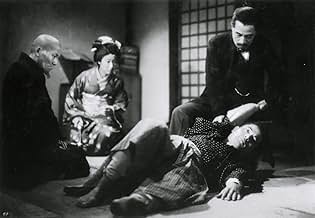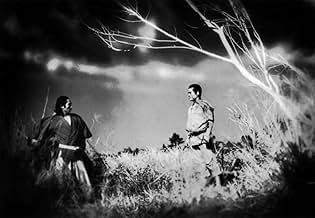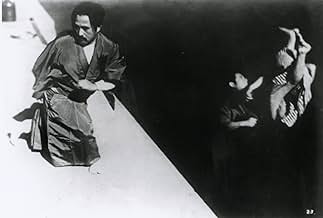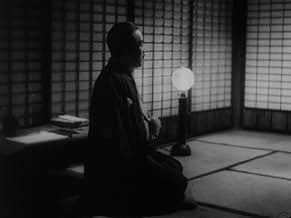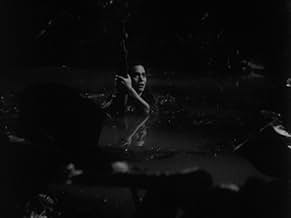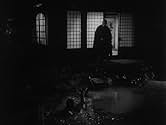Sugata, a young man, struggles to learn the nuance and meaning of judo, and in doing so comes to learn something of the meaning of life.Sugata, a young man, struggles to learn the nuance and meaning of judo, and in doing so comes to learn something of the meaning of life.Sugata, a young man, struggles to learn the nuance and meaning of judo, and in doing so comes to learn something of the meaning of life.
- Director
- Writers
- Stars
- Hatta
- (as Michisaburo Segawa)
- Monma's pupil
- (uncredited)
- Director
- Writers
- All cast & crew
- Production, box office & more at IMDbPro
Featured reviews
Notable debut by the master of craft
Based on a best-selling novel, Sugata Sanshiro established the reputation of Kurosawa, and made him a prominent figure in the filmmaking business. Though it's far from being a genuine masterpiece, the film still shows the director's steady hand and is the admirable proof of his awe-inspiring versatility.
To become the master of martial arts is an uneasy task, and Sanshiro learns the lesson in the first minutes of the picture. Trying to join a clan of Jujitsu fanatics, he quickly realizes that they're just a bunch of up to no good coxcombs. Seeing how easily Yano (Denjirô Ôkôchi), the originator and master of Judo, defeated the group, Sanshiro decides to become his student. To become a proficient Judo technician the young, strong-willed, yet somehow reckless Sugata must overcome many of his weaknesses and find out the meaning of a warrior's way, thus learning the true meaning of life. The student, struggling to accustom himself to the situation, is constantly tested by his master, in many more or less laborious ways. And when the time comes, Sanshiro is finally able to take part in tournaments, in order to prove his indisputable technique and unrestrained power. On his way Sanshiro meets a mysterious, elegant, devilish man by the name of Hagaki (Ryûnosuke Tsukigata), who's like a shadow that's been following Sugata everywhere that he goes. Ironically so, the man - with his familiar look and specifically evil attitude - comes as a typical dark character, taken straight out of a superhero movie. In the film's most climatic and disquieting sequence, the two rivals participate in a duel that will determine who's the strongest living martial artist.
For all the lovers of Japanese culture, and for all the adepts of Asian martial arts, Sugata Sanshiro will definitely be a worthy film experience. For the rest it might be an insightful, valuable, and well-crafted period drama that's not only full of perfectly choreographed action scenes, but also full of humane qualities that prove to have an authentic meaning even in the modern times.
The first step to mastery
Sugata Sanshiro proudly carries his name. Man of the people, attending a school of Jiu Jitsu, a martial art which derive Judo, a risky way to debug the techniques, paradoxically, called "art of softness". But when he meets the skill of the master judoka Yano, Sanshiro decides to become his student and then faced the challenges that will give him a place in the new institute.
What follows then are the circumstances of life that prove the man to his ideals and give opportunity to specify the strength of their inclinations. For it is with chiselases which are polished gems and it is with fire that demonstrates the strength of the metal. But there are things that weigh in man, as love is born and who never wants to hurt, and then, when man is forced to the difficult choice between self- interest or what benefits the group.
I think, "Sugata Sanshiro", was a good start for the master Kurosawa. The film denotes human sense, defending the rules and the collective interest, as it should be, but also understands the meaning of love and compassion, and rejoices as they deserve. The director shows fairly distanced with the scenes of violence, and although I'm sure weighed and weighed now more than ever, this gives a clear account of its central goal was the feeling and no physical force. After all, is in being and not in the domination, as a man can know himself, and as the teacher Yano says:"The way is the search for truth that governs the nature of man, as this is what will give us a peaceful death."
It must have been that this first film was well received at the box office since, two years later, the third Akira Kurosawa film, continue the story with the title "Soku Sugata Sanshiro". There is only regrettable that so valuable a work, with moments of undeniable beauty plastic, and is committed to a positive outlook on life, Japan's clumsy censorship of the time (¿perhaps there will not be clumsy censorship?), has cut about 600 feet, which may never recover and leave the film in some way unfinished.
Against all, I think any fan of the great Japanese filmmaker, should be deprived of seeing this remarkable debut.
Excellent
Good Early Kurosawa
First Kurosawa's work. Not a bad start at all
The outstanding, mind-blowing camera-work that Kurosawa is known for is in a huge development process here, on account of this being his first work; however, even though not yet in a full-fledged form, everything that is meant to be portrayed comes through wonderfully. The story is another factor that definitely enhances the representation taking place in the film, as it matches perfectly with the cinematic techniques Kurosawa puts to work. If there are any inconveniences to be encountered throughout the course of the film, it would all obviously be as a result of the cut-off already mentioned.
The conspicuous acting goes without saying; everyone in the film fits into their roll perfectly. The main character may probably come as overacted to an audience not familiarized with Kurosawa's work, or Japanese cinema for that matter; Susuma Fujita would not be as well-known as Toshiro Mifune would later become, but he undoubtedly does his best here.
The film, despite the cut-off, works perfectly. One can just wonder how much better this could be if it were in its full form, as first conceived by the director.
Did you know
- TriviaWhen asked about his experience filming his debut movie, Akira Kurosawa said "I simply enjoyed it. I went to sleep each night looking forward eagerly to the next day's shooting, and there was absolutely nothing painful in the experience... the whole task was carried out with a feeling of ease."
- Quotes
Sanshiro Sugata: The spirits of heaven and earth congregate in our nation of gods. For us they have built Mt. Fuji that towers for eternity. For us they have brought water to flow around our islands. For us they have created the beauty of cherry blossoms...
[he stops and remembers Sayo]
Buddhist Priest: [hits Sanshiro on the head] Idiot! This is an important match. What the hell are you thinking?
Sanshiro Sugata: I can't do it. I can't win.
Buddhist Priest: What? Are you afraid of Hansuke Murai?
Sanshiro Sugata: No. Someone stands between him and me.
Buddhist Priest: Who?
Sanshiro Sugata: His daughter.
Buddhist Priest: You love her?
Sanshiro Sugata: No. It's not that. Priest, I saw her praying selflessly for her father. It was beautiful and I was touched. That's the problem. How can I overcome it?
Buddhist Priest: Stupid! Be pure and innocent like her.
Sanshiro Sugata: I can't.
Buddhist Priest: You can. You once were.
Sanshiro Sugata: When?
Buddhist Priest: [pointing to the pond] Sanshiro Sugata found new life there. Have you forgotten? What is your life, Sanshiro?
- Alternate versionsAlthough originally released in Japan at 97 minutes, it was re-edited and re-released in Japan in 1952 at 80 minutes. This 80-minute version is all that is currently available, and it includes some slight changes in the film's structure as well as its running time.
- ConnectionsFeatured in Kurosawa: The Last Emperor (1999)
- How long is Sanshiro Sugata?Powered by Alexa
Details
- Runtime
- 1h 19m(79 min)
- Color
- Sound mix
- Aspect ratio
- 1.37 : 1

